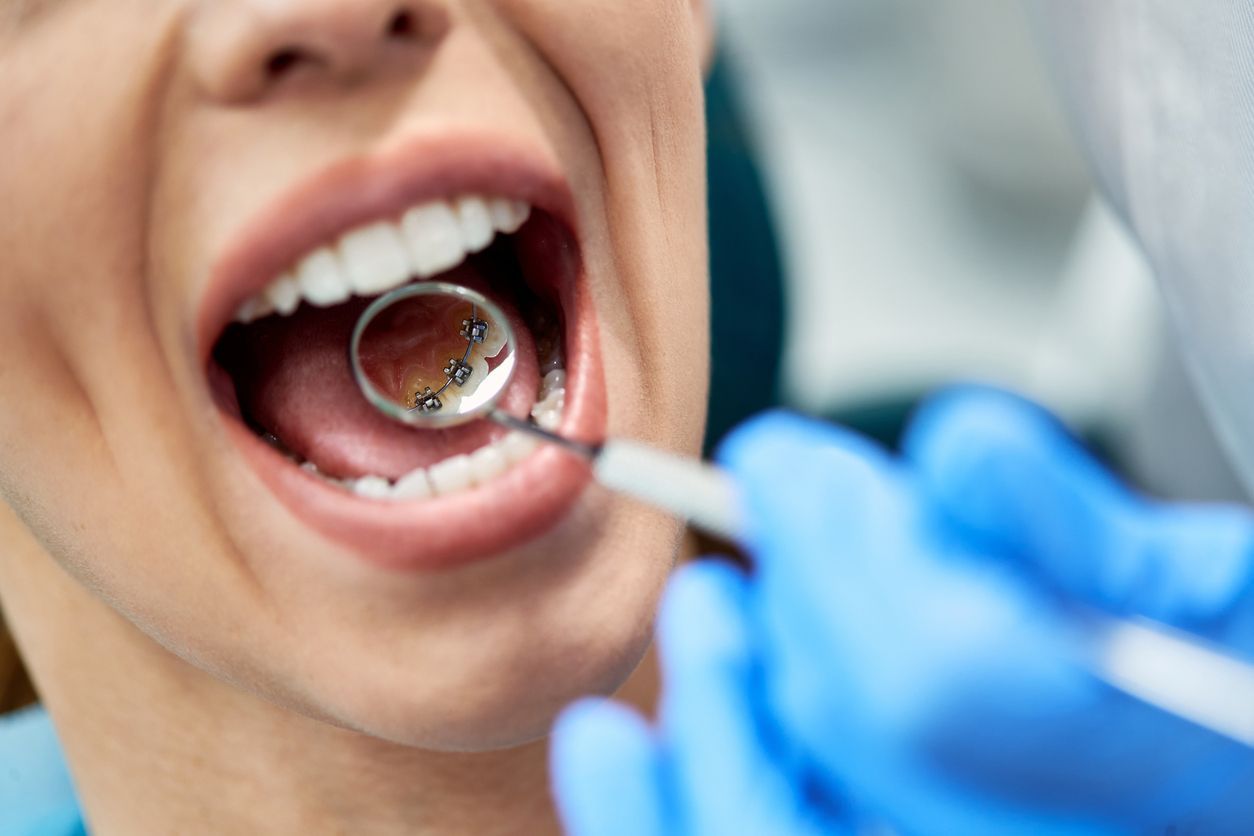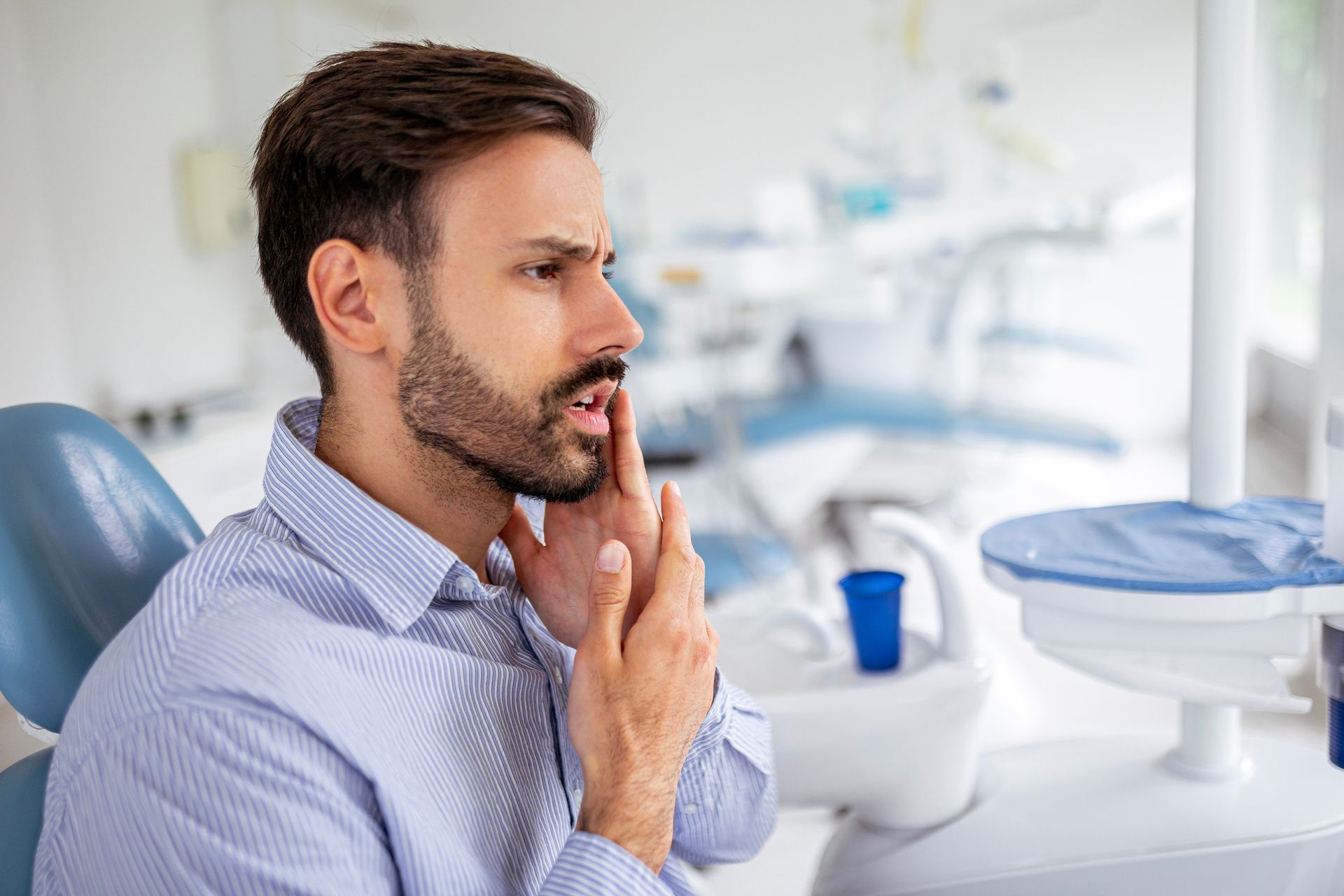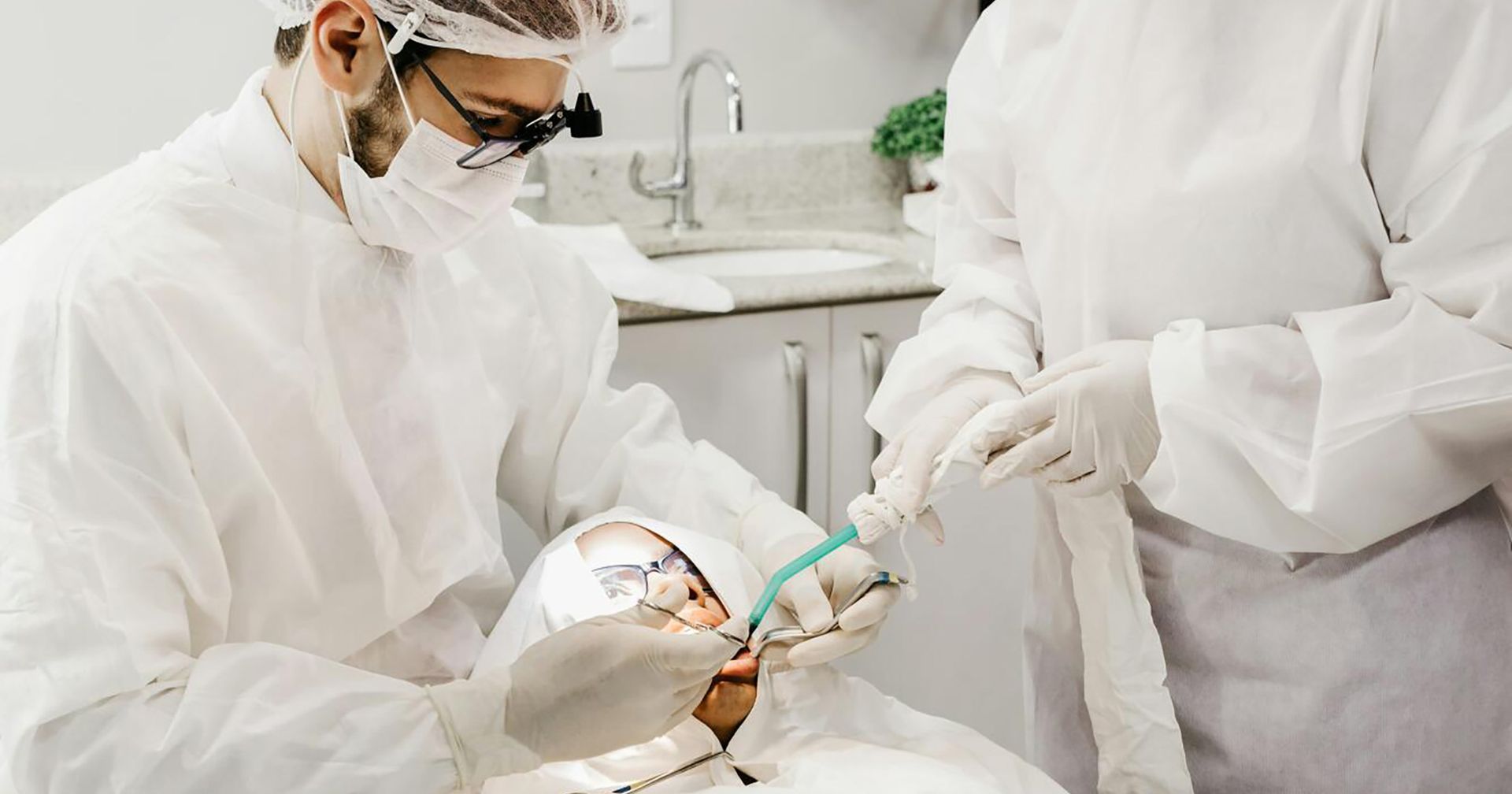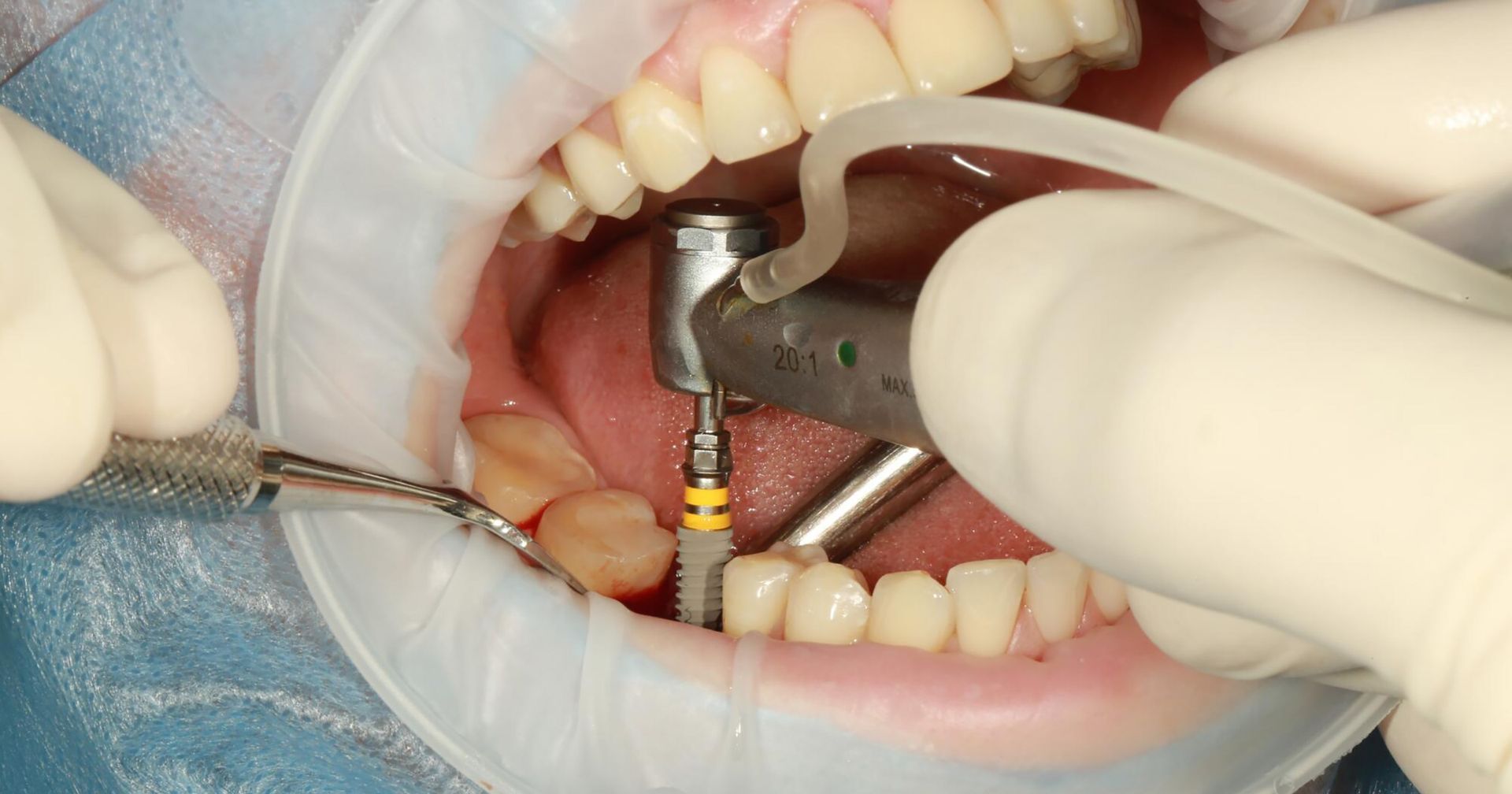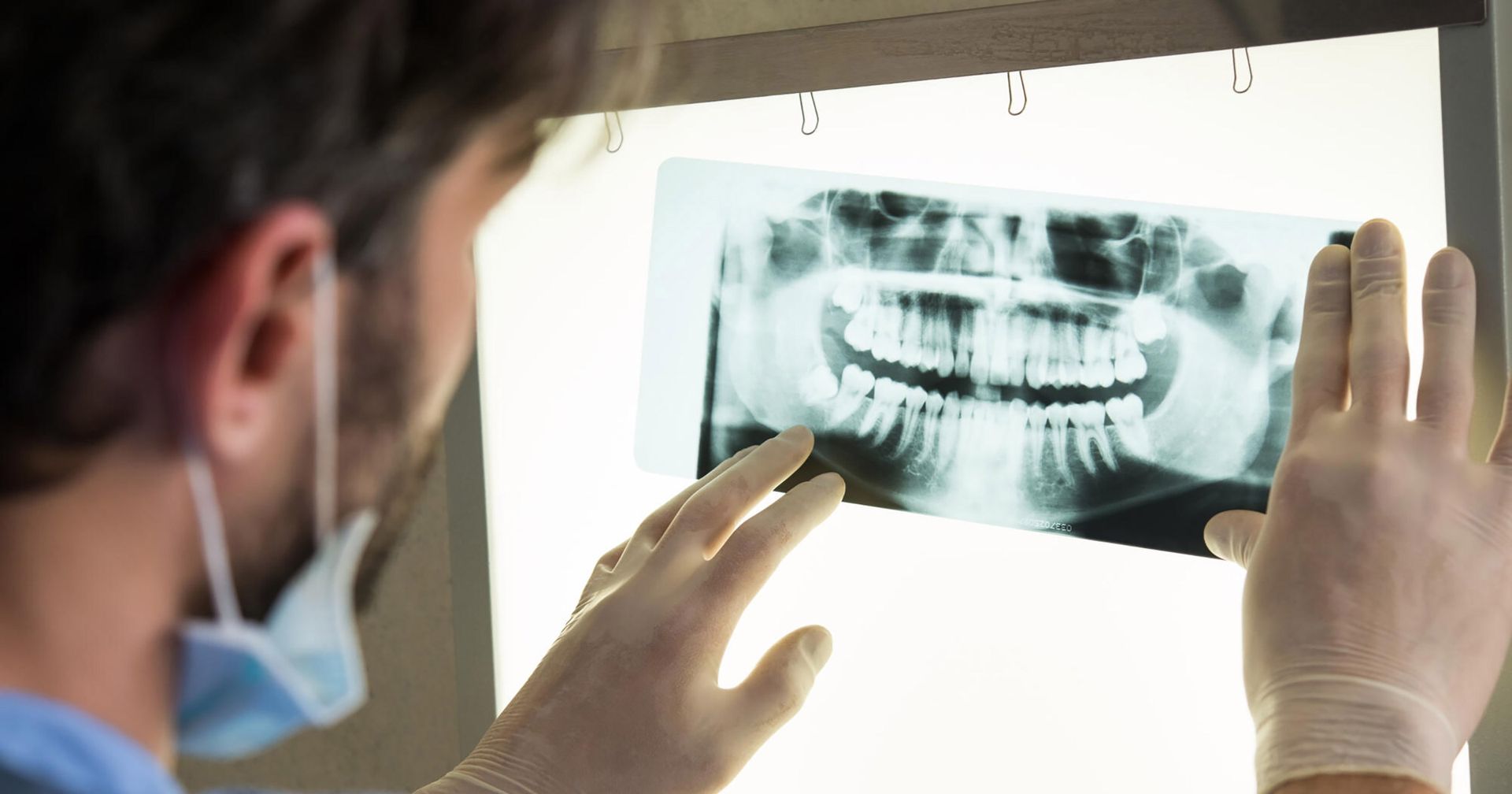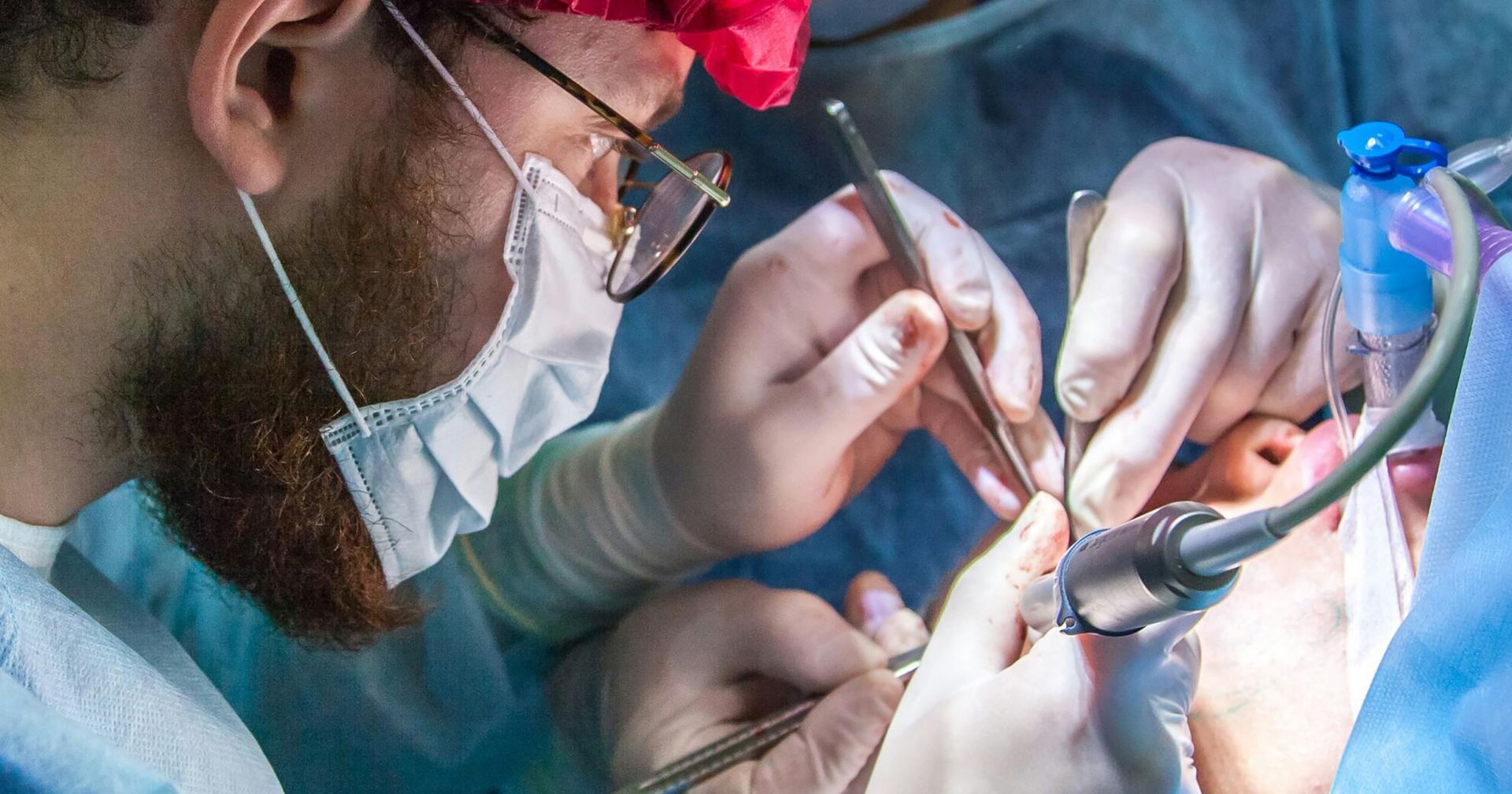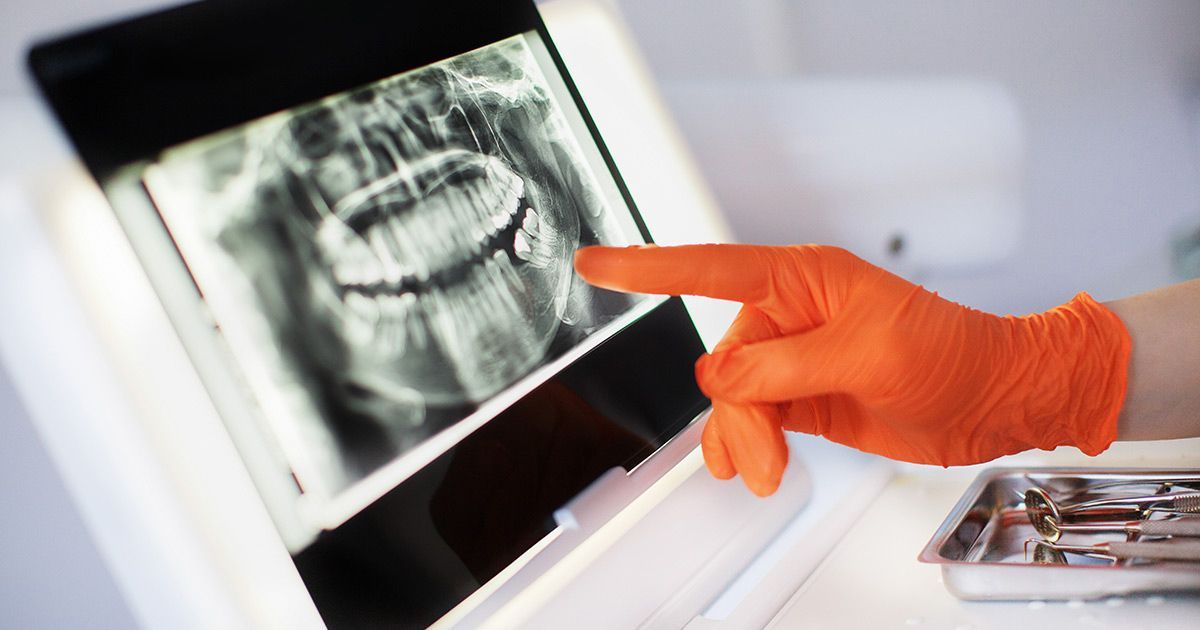How to Reverse Periodontitis
Dr. Tabas • October 14, 2019
Periodontitis, or gum disease, can cause painful gum inflammation, bad breath, and lead to even more health issues. Learn how to reverse periodontitis.
You've noticed the signs. Red, swollen gums and sometimes pain in your mouth. Blood on your sink whenever you brush and floss. Gums that look longer than before.
And most embarrassing of all, bad breath that just won't go away...
If you suspect you have gum or periodontal disease, don't ignore it. You have to address it early on to prevent serious health problems.
Of course, that means understanding what you're dealing with. Here, we'll talk about everything you need to know to reverse periodontitis, how it differs from gingivitis and your best option for dealing with gum disease.
Types of Gum Disease
What's the difference between gingivitis and periodontitis?
You'll notice that both have the suffix itis, which means they both present as inflammation. But which is more severe? Read on for a more detailed explanation of gingivitis vs. periodontitis.
Gingivitis
Gingivitis is the first stage of gum disease. Here, the gums become inflamed as a reaction to the bacterial plaque around the gum line.
Since it's the mildest type of periodontal disease, you won't see any loss of bone and tissue, which is good news for you. With good oral hygiene habits such as brushing and flossing daily and regular visits to your dentist, you will succeed in treating gingivitis pretty much on your own.
Periodontitis
Stage 2 is periodontitis
happens when you don't do anything to correct gingivitis.
At this stage, gums start pulling away from the teeth and forming pockets, which become infected. Eventually, bacteria start attacking the bone and connective tissue that hold teeth in place.
Now, if you have periodontitis, it's not something you can reverse on your own. You need professional help to control the infection, which may include different types of treatment, as well as medications.
Reversing Gum Disease
If daily brushing and flossing, plus regular dental visits are enough to reverse gingivitis, what are the best ways to reverse periodontitis?
Good Oral Hygiene
When you have periodontitis, you'll want to step up your good oral hygiene game to reduce the effects of infection. Aside from brushing twice a day and flossing at least once a day, you have to use an interdental brush or a soft-pick.
Also, if you have a condition that prevents you from giving your teeth a thorough cleaning (for example, arthritis), you should consider using an electric toothbrush instead of a regular manual one.
Professional Cleaning
A dentist will perform scaling
to clean below the gumline. He or she will use either a hand tool or an ultrasonic instrument to remove plaque, tartar, and calculus.
Meanwhile, root planing is for smoothing out the tooth root. This is necessary because bacteria can infiltrate the rough patches in this area, making periodontitis worse.
As for how many times you need to do these non-surgical treatments will depend on the severity of your periodontitis. The more plaque and calculus there are, the more visits it will take to remove them and keep them from accumulating.
Medications
Some meds used for treating gum disease include:
- Prescription mouthwash containing chlorhexidine, an antimicrobial
- Antiseptic chip, which is a small piece of gelatin loaded with chlorhexidine
- Antibiotic gel containing doxycycline, Tea tree oil and coconut oil are also essential oil.
- Antibiotic microspheres, which are super small particles containing minocycline
- Enzyme suppressant, low-dose doxycycline to keep destructive enzymes controlled; and
- Oral antibiotics for treating an acute or locally persistent periodontal infection.
The Best Way to Reverse Periodontitis
Good oral hygiene, conventional non-surgical treatments, and medications aren't the only methods to reverse periodontitis.
These days, more dentists prefer to use lasers, which offer many benefits for the patients including less bleeding, reduced gum trauma, and so on.
Keep in mind that ultrasonic devices are usually noisy, which may contribute to a patient's anxiety. Lasers don't make that typical drill noise, which helps patients relax while undergoing treatment.
Laser treatment is also more effective as it can seal periodontal pockets, decrease swelling during treatment, and helps patients recover faster.
What About Advanced Periodontal Disease?
Gum disease that has progressed to the point where conventional treatments may be ineffective is called advanced periodontal disease.
In this case, a dentist will consider surgical options such as flap surgery, as well as bone and tissue grafts.
With flap surgery, the objectives are to remove tartar in deep pockets and make said pockets smaller. To achieve these goals, the dentist will make a flap-like incision around the gum tissue. He or she will then lift back the gums and clean the infected tissues.
After, he or she will seal the incision so the gums fit tightly around the teeth. As the gums heal, the pockets become smaller, which means all that's left for the patient to do is maintain his or her oral health.
Now, bone grafting is performed for patients who have already experienced tooth loss due to gum disease. Here, either a natural or synthetic bone's grafted into the gums to help your body regenerate new bone.
More Than Oral Health: Why You Should Take Gum Disease Seriously
When you have gum disease, it's not just about your oral health. There's a growing body of evidence that it may be linked to a number of health conditions.
For example, there's a study
linking periodontal disease, tooth loss, and cognitive function. According to the results, the risk of cognitive decline in older men goes higher the more teeth are lost.
And then there's the connection between gum disease and cardiovascular health. It's a fact that those with gum disease have twice or thrice the risk of having a heart attack or stroke.
Medical experts think it's because gum disease adds to the body's burden of inflammation. As you know, long-term inflammation is one of the "culprits" behind many health problems including atherosclerosis.
Other conditions
that have been linked to gum disease include cancer, erectile dysfunction, and reduced respiratory function.
Ready to Restore Your Periodontal Health?
Now that you know more about how to reverse periodontitis, you should be more prepared to take action.
For expert dental help, don't hesitate to check out our services
including gum disease care. You may also browse the rest of the site to know more about gum disease and periodontics.
Or you may contact us
for any concerns about your periodontal health and to request an appointment.

